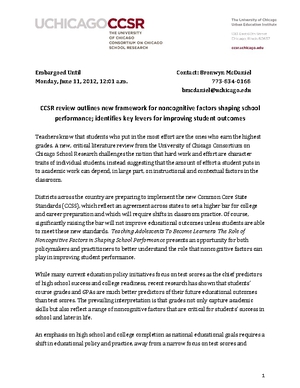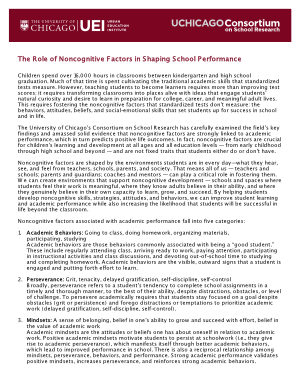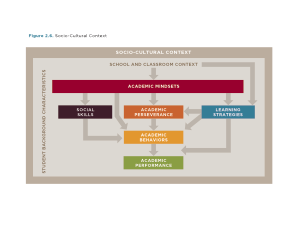1. What noncognitive factors are associated with academic performance?
2. What do we know about the relationship between these noncognitive factors and academic performance?
3. What helps foster the noncognitive factors associated with academic performance?
This report summarizes the research on five categories of noncognitive factors that are related to academic performance: academic behaviors, academic perseverance, academic mindsets, learning strategies, and social skills. It proposes a framework for thinking about how these factors interact to affect academic performance, and what the relationship is between noncognitive factors and classroom/school context, as well as the larger socio-cultural context.
PERTS and the UChicago Consortium have developed a survey for practitioners to gauge their students' academic mindsets, based on the research reviewed in this report. Click here for more information.
Click below to view a 90-second episode of GO FIGURE, with Camille Farrington explaining Figure 2.1 of this research (September 12, 2023).
Learn more about the noncognitive factors associated with academic performance:
It examines whether there is substantial evidence that noncognitive factors matter for students' long‐term success, clarifying how and why these factors matter, determining if these factors are malleable and responsive to context, determining if they play a role in persistent racial/ethnic or gender gaps in academic achievement, and illuminating how educators might best support the development of important noncognitive factors within their schools and classrooms.
The review suggests some promising levers for change at the classroom level, and challenges the notion that hard work and effort are character traits of individual students, instead suggesting that the amount of effort a student puts in to academic work can depend, in large part, on instructional and contextual factors in the classroom.
In addition, the review also presents challenges for future research on noncognitive factors.









